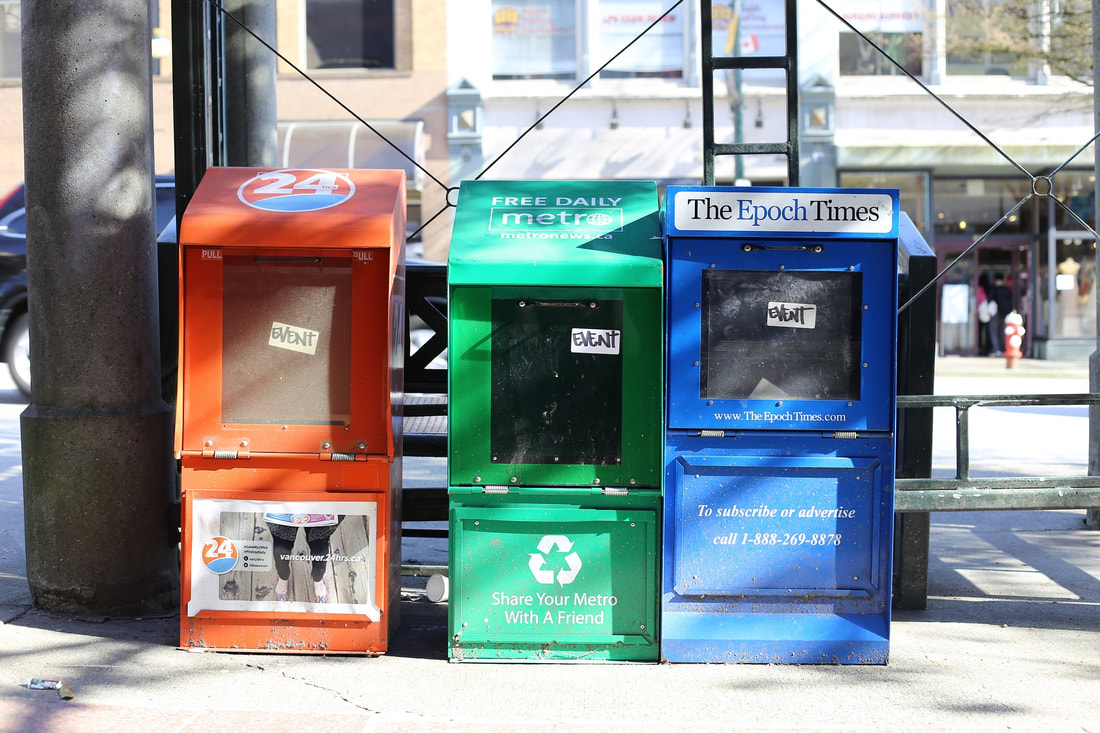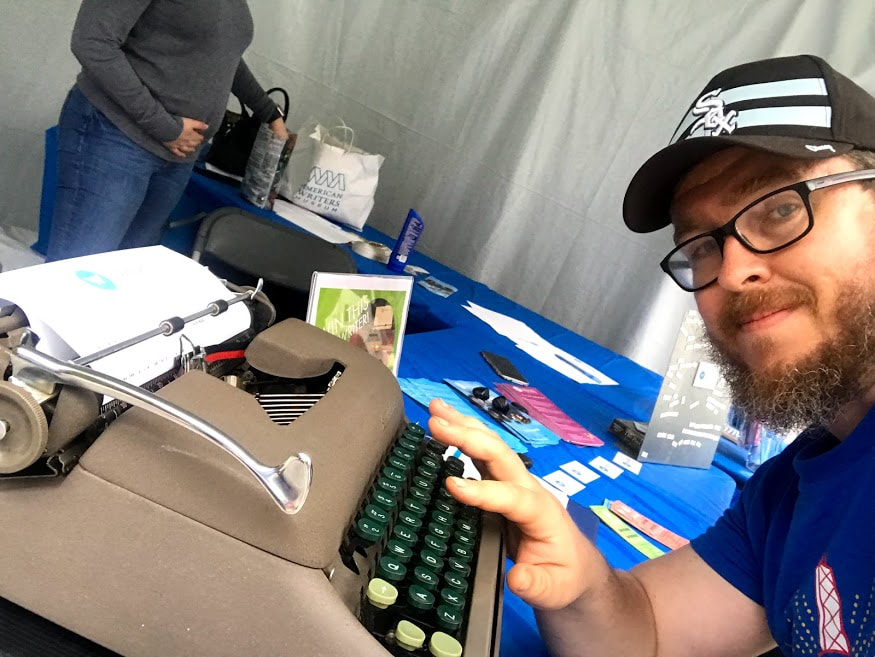|
The News and its Discontents By Joseph S. Pete As a city council reporter in a Midwestern suburb, I ended up covering the youngest city council member in the community's history. He was a clean-cut Oxford shirt-wearing preppy type who often obfuscated, failed to reveal any substantial information, or claimed he wasn’t familiar with a subject and needed to research it more. If you pressed him for more detail, asked any follow-up questions, even softballs, he repeated the same vacuous platitude over and over again, enunciating it every time with a more contemptuous sneer to gloat that you weren’t getting anything else out of him. I was convinced he was going to become governor someday. He was bespectacled and perhaps a trifle husky, but he was also tall and fit the general profile. It felt like he was going somewhere. As a source, he was less than worthless. He would proffer nothing other than self-serving quotes that were heavy on political cliche and light on substance. He appeared to serve only his own political ambition and not the community at large or getting the truth out to people. Often, at heated public hearings, he suggested newspaper reports were inaccurate or outright false. He would try to deflect public criticism by trying to claim the news was fake. Eventually, I moved on to a larger media market and forgot about him. It was with surprise and schadenfreude one day that it was revealed that the city council member was arrested and forced to step down after he was caught surreptitiously filming women changing and using the bathroom at his lakefront home. It turned out the righteous right-wing pol was a major pervert. The revelation reaffirmed my longtime belief that anyone who shied away from, hid from or maligned the media probably did so out of selfish self-interest because they were downright dishonest and hiding something. This city council member definitely had a lot to hide. He ended up being convicted of voyeurism and sentenced to jail time. That’s the crux of it. Politicians have every incentive to lie: to get reelected, to amass power, to conceal wrongdoing or just to save face. All journalists really have is the truth. No one becomes a newspaper reporter for money, wealth, fame, respectability, public adulation or even basic job security. I’ve worked at multiple jobs, including journalist, soldier, janitor, and caretaker for the developmentally disabled. No profession I know has higher ethical standards than journalism. If a reporter gets it wrong, they get egg on their face and there’s a correction in the next day’s paper. A journalist who gets it seriously wrong or commits a cardinal sin like plagiarism or fabrication can get fired and blackballed from the industry for good. Compare that with a politician who can lie routinely and get away with it indefinitely. But that’s the rub. It’s easy and common to dismiss the media as having a liberal bias or being a corporate tool. It’s convenient to cry “fake news” if confronted with anything that even slightly challenges your ironclad worldview. But the legacy media in this country—especially at the local level—generally strives to be neutral, an objective purveyor of the facts whatever our personal beliefs. It’s easy to become cocooned in the nests we build for ourselves in Facebook, Twitter and other social media outlets. It’s quite possible to never engage with anyone with a different worldview or any media outlet that does not cater expressly to our ingrained political biases. But we can’t collectively keep the torch of democracy burning unless we subscribe to a shared notion of truth. Joseph S. Pete is an award-winning journalist, an Iraq War veteran, an Indiana University graduate, a book reviewer for a national magazine, a photographer, and a frequent guest on Lakeshore Public Radio. He is a Pushcart Prize and Best of the Net nominee who has read his work for the Fictitious series on the iO Theater stage, had a play staged at the Detroit Heritage Theatre Festival, showcased his photography at the Oddtropolis Art Show in San Francisco and was named the poet laureate of Chicago BaconFest, a feat that Geoffrey Chaucer chump never accomplished. His literary or photographic work has appeared in more than 100 journals, including The Tipton Poetry Journal, Chicago Literati, Dogzplot, Proximity Magazine, Stoneboat, The High Window, Synesthesia Literary Journal, Steep Street Journal, Beautiful Losers, New Pop Lit, The Grief Diaries, Gravel, The Offbeat, Oddball Magazine, The Perch Magazine, Bull Men's Fiction, Rising Phoenix Review, Thoughtful Dog, shufPoetry, The Roaring Muse, Prairie Winds, Blue Collar Review, The Rat's Ass Review, Euphemism, Jenny Magazine, Vending Machine Press and elsewhere. Like Bartleby, he would prefer not to. The views and opinions expressed in this guest blog post reflect solely those of the author and
not necessarily those of TRiP Wire or The Raving Press. |
AuthorGabriel H. Sanchez is an author, poet, actor, editor, and publisher from the Rio Grande Valley in south Texas, on the border with Mexico. Gabriel is the author of "Once Upon a Bad Hombre," "The X Series," "The Martian Ones: Tales of Human Folly," and "The Fluid Chicano." You can read more about him and his other projects at gabrielhugo.com or on his Facebook page: @gabrielhugoauthor. Categories
All
Archives
June 2024
Fueled by RPM |



 RSS Feed
RSS Feed
